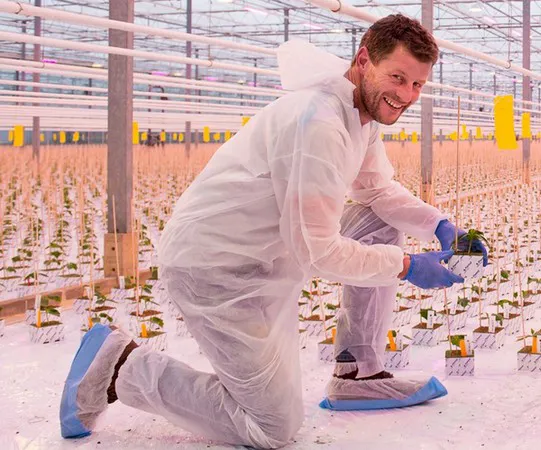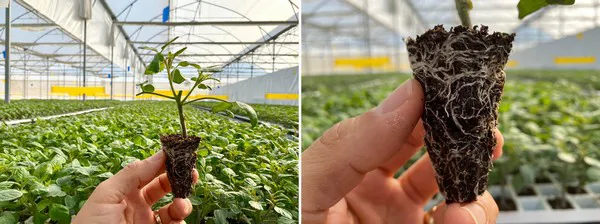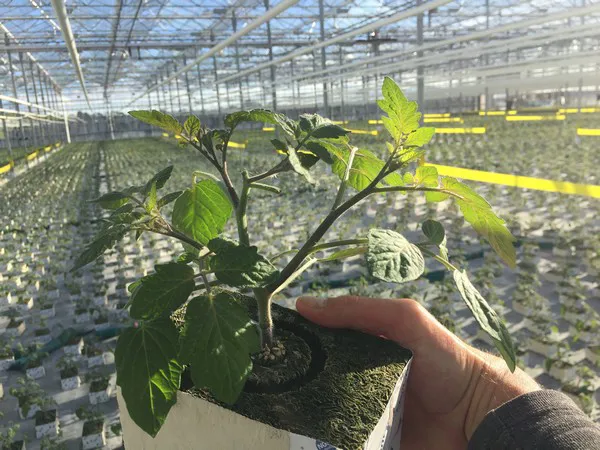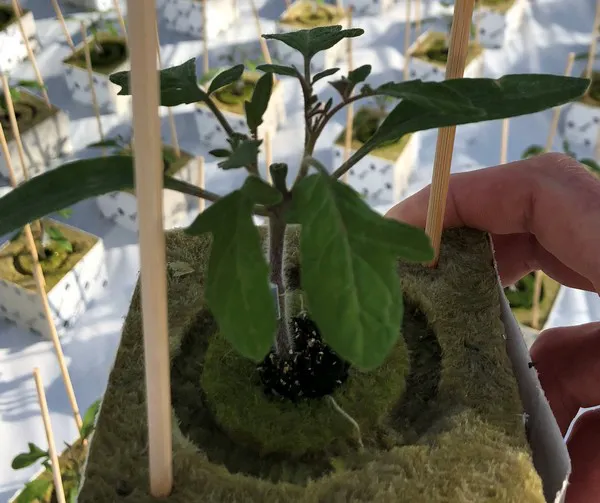One Greek, one Frenchman in New Zealand and one Dutchman, this is how many crop advisers specifically aimed at plant propagators Hans van Herk of Propagation Solutions knows. That is why he has stepped into this specific branch himself for the past three years. Hans helps plant growers worldwide with improving quality and where necessary with solving cultivation problems in propagation. "From the moment I started, the questions kept coming."

In the Netherlands there are propagators that have been around for more than a hundred years, but this is not the case in many other countries. This means that Hans is now getting to know propagators all over the world, because they encounter challenges or are growing rapidly. “Did you know, for example, that Armenia now has 100 hectares of tomatoes under glass? I didn't, but now I do. They want to do their own propagation for political reasons, but that also includes grafting. And they are not that experienced in that yet. ”
"Simple" advice
This is just one example of questions that propagators ask Hans. He sees that there is a big need for specialist knowledge about propagation. “There are already many good crop advisers worldwide with some knowledge about propagation, but at the same time there are few who are really only focused on this fairly specialized market. I now work with both those "general" crop advisers and my directly specialized colleagues to help propagators and growers. "
The major issues that plant growers sometimes struggle with are "almost always blind ones and cluster quality" in tomatoes, but also the success rate in grafting and equal shoots with pinched plants, Hans notes. In cucumber, much attention is also paid to the roots, just as in bell peppers, where the leaf surface is also given the necessary specialist attention.
As an example, he gives a Mexican propagator who had problems keeping the shoots even. “There I was able to help them by removing a piece of leaf from the tomato plants that had two leaves on top. Both leaves must have an equal leaf surface. If that succeeds, the shoots will also remain more even. To me this is something relatively simple, but for them it turned out to be a real trick that improved the quality and uniformity of the shoots by leaps and bounds. ”

Special issues
More specific issues are also discussed. Hans regularly shares them on LinkedIn. "I recruit quite a few new customers this way." As an example of special features, Hans mentions the typical growth of a cucumber variety with many tendrils that grow into the air, a grafted pinched tomato plant with three or four heads and the cultivation of watermelon plants grafted in large numbers in the Mediterraenean, which is not very common in the Netherlands. “In watermelon you have many seedless varieties for which grafting and germinating are difficult. If that nevertheless succeeds together with the propagator, thenits' a nice one to show. ”
Growth spurt
In the necessary countries, plant propagators, same as production growers, are experiencing a growth spurt. Hans mentions "huge" plant nurseries in Argentina (yes, really!), Mexico and Canada. “In those countries you see that they sometimes want to double the already considerable acreage within three years. Sometimes I am also asked to give advice about the greenhouse to be built. In this way I also broaden my consultancy work and it can, for example, also concern the choice of concrete or cultivation tables; or about logistics in the company. Just as essential for plant quality, which I believe is responsible for 40 percent of the ultimate success of a crop. ”
Unlike in the Netherlands, the supply chain for propagators abroad is much less specialized. “Here propagators can purchase products from dozens of companies, all for a specific part of the cultivation. This is different abroad and you see a more generalist supply. This poses challenges and can increase the risk of errors. "

A pinched tomato with four shoots, a so-called four-header.
Blind plants
Cultivation history and / or experience helps. Hans brings these with him, also from his previous work at a propagator and a substrate supplier. For example about blind plants, a common problem that propagators have to deal with. “Nowadays, in tomatoes, almost always grafted and pinched on the second leaf, you see the problem occurring after the first truss. It can also occur in plants that are pinched on the cotyledons. In part it is a genetic predisposition of a breed, but you can both prevent it or make it worse.”
When it comes to blind plants, Hans also remembers a Canadian propagator who suffered from this in peppers a few years ago. “Just like his Dutch fellow propagators, he wanted to grade the plants. But the ten-day-old plants received such an enormous shock from this selection that about a quarter of the plants became headless. This can often be solved in tomatoes because a new shoot appears, but in bell peppers it is much more difficult. By stopping the early selection and only doing so when transplanting, the problem was avoided. It resulted in a bit of extra work, but in this case it turned out to be the solution.”
 A pinched tomato on the cotyledons that is 'very strong'
A pinched tomato on the cotyledons that is 'very strong'
Seminar
Although a lot of propagation takes place in winter, Hans is busy all year round. Just like propagation by the way, who sometimes even cultivate all year round, especially due to lit crops in tomato and cucumber. Hans has a customer like this in Northern Europe.
At the moment, however, it is mainly all about watermelons. “From March to July, many propagators are working on this for cultivation in Southern Europe. Afterwards the season of lit crops will soon start again.”
And in the autumn of 2021 there will also be a seminar, co-organized by Hans. At the end of September, as it currently stands, specialists from the international propagation world will meet together with Flier Systems and Grodan to consider the current challenges. “I'm really looking forward to that. Hygiene will be high on the list, but other topics as hybrid lights, biological control & resilient plants will also be discussed. After all, everyone ultimately wants to grow the best plants, that still is a nice game to play!”
For more information:
Propagation Solutions 
Hans van Herk
hans@propagationsolutions.nl
+ 31 6 20 91 81 00
